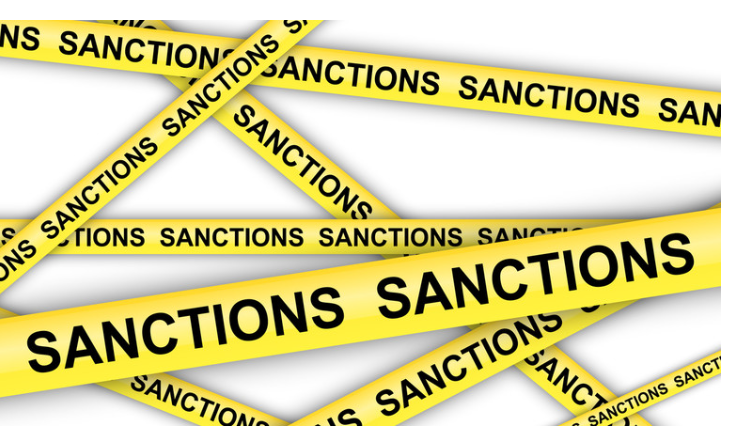The 8th sanctions package against Russia that will most likely be accepted at the European Union Leader’s Prague summit on October 6 includes certain provisions that would profoundly affect the Turkish economy. New measures stipulate a new listing of individuals and further restrictions on trade such as an import ban on Russian “steel products, wood pulp, paper, machinery and appliances, chemicals, plastic, cigarettes,” which is expected to deprive Russia of 7 billion Euros in revenues yearly. The EU further restricts exports of IT, engineering and legal services to Russia, as well as expands the list of high-tech goods that cannot be sold to the country.
President of the European Commission Ursula von der Leyen announced on October 5 that the EU Ambassadors in Strasbourg have reached an agreement on the 8th package which aims to prohibit Russia’s oil transportation to non-EU countries above a certain price.
At a press conference with High Representative of the EU for Foreign Affairs and Security Policy Josep Borell, Leyen said that the sanctions were in response to Russia’s annexation of four more regions of Ukraine and partial mobilization announcement.
EU leaders are expected to announce the sanctions at the Prague meeting, where they invited 17 more non-member countries, including Türkiye, under the name of the “European Political Community”.
Impact on the Turkish economy
The sanction decision is not specifically aimed at Türkiye, but it may affect Türkiye deeply due to its trade and economic relations with both the EU and Russia. Türkiye is the EU’s sixth trading partner and the EU is Türkiye’s first trading partner. In 2021, 41 percent of Türkiye’s total exports were to EU countries; when the UK and non-EU countries complying with EU sanctions are added to this, the rate approaches 50 percent.
Machinery and transportation vehicles are the leading export items. Türkiye is dependent on Russian natural gas for energy, and it also buys oil from Russia. The fact that Germany was in a similar situation had relieved Türkiye until now. Time will tell how the nuclear power plant built by Russia’s Rosatom company in Mersin, Akkuyu will be affected by the new EU sanctions.
The fact that Russian tourists (along with Egypt) who could not go to the USA and Europe due to Western sanctions turned to Türkiye, put a smile on the tourism industry this year. Sources point out that even providing ground services to Russian planes may be the subject of sanctions. This may force the tourism sector to take new measures.
When the choice is the EU or Russia
Turkish organizations and companies, which became Russia’s gateway to the west after the Russia-Ukraine war, have already started to take measures to avoid being included in the EU sanctions list. Sources evaluate Turkish Airlines (THY) refusal of Russia’s request for flight simulator training for 150 pilots in this context. THY is a member of the EU Aviation Safety Agency (EASA).
ANALYSIS: Twin threats from EU to Turkish economy
As it will be remembered, the Minister of Treasury and Finance Nureddin Nebati complained that the USA was putting the Turkish business world under “sanction stress”. The US Treasury Department had written letters to prominent business organizations warning that institutions and banks that do business with Russian institutions and individuals could be included in the US sanctions list. Nabati said that Türkiye did not participate in the US and EU sanctions, but that it also would not allow the sanctions to be bypassed or circumvented.
After this warning from the USA, cooperation with Russia’s Mir credit card system, which President Tayyip Erdogan had highlighted after his meeting with Russian President Vladimir Putin in Sochi on August 5, was stopped by Turkish banks.
Under supervision after Sochi
EU sanctions do not specifically target Türkiye. However, it is understood that Türkiye’s close relationship with Russia, especially its key role in the grain agreement and hostage swap, and the money transfer made through the Akkuyu nuclear power plant, caused the USA and the EU to closely monitor Türkiye.
WATCH: Turkey Is Facing Sanctions Again
The turning point here was the Erdogan-Putin meeting in Sochi. Although it was announced that financial issues including energy trade with the ruble, the postponement of natural gas debt and the Mir card were discussed during the meeting, the lack of a memorandum of understanding or a joint statement attracted the attention of western capitals. Both the US and EU sides asked the Ministry of Foreign Affairs if there was a special agreement between the two countries that would nullify the sanctions. Although the Foreign Ministry said that such a thing was out of the question, Türkiye’s Western allies would not have believed it because they started to look closely at all transactions. Sources attribute the suspension of Mir card agreements to this monitoring effort. It is understood that the Russian-based Troy system, which is planned to be developed instead of Mir, will be the next.
By extending its senctions scheme in the 8th package the EU also aims to protect the companies of the member countries abiding by the sanctions against the companies of the third countries that do not implement them, like Türkiye. Sources claim the inclusion of maritime transportation as a result of pressue on Brussels by Greek, Greek Cypriot and Maltese goverenments.
Sanctions forces choice
Not only Turkish business and financial circles but also Erdoğan who is looking for foreign [funding] resources before the 2023 elections may face difficult choices because of the new sanctions on Russia.
Türkiye’s role in the Russia-Ukraine war until now has been balanced and successful. Maintaining this balance becomes even more important as, after the banking system, the US and EU sanctions now surround key sectors.
In summary, the US sanctions had not hurt Türkiye much since now; trade and economic relations with the USA were not of that size. However, EU sanctions can hurt, and we may witness high-cost choices.
Excerpt only, click the link for the full article
